They get the grime off the kids’ PE kit. They breathe new life into your favourite top. Without a grumble or complaint, they wash your wardrobe several times a week. Simply put, washing machines are a loyal workhorse we’ve relied on for decades.
All that spinning and draining takes its toll though, and no appliance can last forever. How long should a washing machine last, then? Plus, is there anything you can do to extend its lifespan to the maximum and avoid unnecessary washing machine repairs? That’s what we’re going to find out.
How long should a washing machine last?
The answer to ‘How long should a washing machine last?’ depends on a few factors:
- The brand and model of washing machine
- How well you look after the machine
- How often you use it
The simple truth is that with washing machines, you tend to get what you pay for. For high-end washing machines, the manufacturer may test them to the equivalent of 20 years’ average use. If so, the manufacturer will probably state this wherever they’re advertising the appliance. However, you should be aware that this doesn’t mean these appliances have a 20-year guarantee.
Most washing machine models, especially the cheaper ones, will have a much shorter average lifespan than 20 years. In the cheaper price range, your typical machine might last five to 10 years.
It’s important to note that these are average lifespans. The lifespan of a particular washing machine depends on how much you use it and how well you maintain it. If you run it more often, it will need replacing sooner. If you take care to use it according to the instructions, it will last longer than if you ignored them.
Protecting your washing machine beyond its guarantee
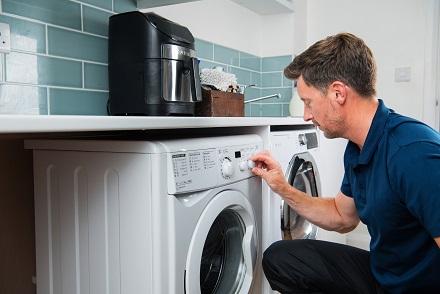
Most manufacturers’ guarantees last one or two years. If the average washing machine lifespan is 10 years, that leaves eight or nine years when the guarantee doesn’t cover you. Then, when something breaks, you’re left with the unexpected cost and hassle of finding an engineer.
This is where appliance protection can help. You’ll be protected against those surprise costs and be able to book a repair easily with trusted professionals. Sound useful? Find out more about washing machine protection.
Things to avoid for a healthy washing machine
There are a few habits that can shorten your washing machine’s lifespan, but it’s not much effort to avoid them. If this saves you the stress of a breakdown for a few more years, it should be worth it.
Having said that, it’s important to note that every machine is different. Whether because of a faulty part or some other reason, they can break down despite your best efforts.
Don’t use too much laundry detergent
Detergent cleans your clothes, so adding twice as much will make them twice as clean, right? Well, no – in fact, using more detergent can cause some problems.
To explain why, we need to get a bit scientific. Detergent molecules have two sides: one is attracted to water (hydrophilic) and the other is attracted to oil (hydrophobic). The oil-loving side of the detergent surrounds the dirt in your clothes and sticks to it. Then when the water flows into your machine, the water-loving side of the detergent sticks to the water. The water then carries the detergent and the dirt away together, leaving your clothes clean.
For this process to work properly, you need the right mix of water and detergent. The water can only take away a certain amount of detergent. So if you put too much detergent in, it won’t leave the machine. That will leave detergent on your clothes and they’ll feel sticky.
Worse than this, too much detergent can damage your washing machine. It will build up, leaving a residue and stopping water from flowing smoothly. This can cause leaks and encourage mould or mildew that spreads to your clothes.
How much detergent should you use?
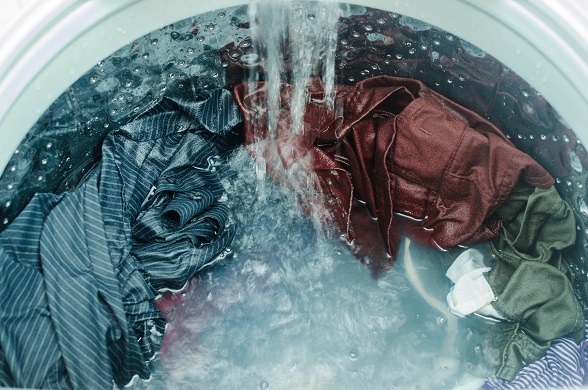
Generally, it’s a good idea to follow the instructions on the detergent. Still there are times when the detergent company might be suggesting too little or too much.
These are some signs you’re using too much detergent:
- Clothes feel slimy, sticky or soapy after washing
- Clothes feel stiff or harder than usual
- Coloured clothes become duller
- White clothes turn grey
- The washing machine smells bad
On the other hand, you can use more than the recommended amount of detergent in some cases. It can help to add a dash more detergent for very muddy or stained clothes, for example. Also be aware that a larger than average washing machine will need more detergent.
Don’t stuff too much in the machine
It’s tempting to throw as many clothes into the drum as possible, especially if you’re short of time and have a lot of washing to get through. Sadly, this will just strain your washing machine and leave your clothes unclean.
As already mentioned, your machine needs to use the right amount of water to wash a given volume of clothes. If you overload the drum, the machine will still use the same amount of water. So there won’t be enough water to wash the extra clothes you put in. As a result, your clothes will come out without being properly cleaned. The water might not reach some clothes at all, if they’re tightly packed.
Overloading the drum will also put your machine under a lot of strain. Each machine can spin a particular weight of clothes, so anything heavier than that can damage the bearings. That will shorten your machine’s lifespan.
Sometimes excess clothes can also get lodged between the door seal and the inner drum. Then they’ll end up getting stretched or torn.
Don't underload it either
Putting too little in your machine can cause problems too. Besides wasting energy, it can make your machine spin off balance, which will damage it over time.
So how much laundry is the right amount? Have a look at your machine’s manual — if you’ve lost it, you can download or order one from the manufacturer. That should give you a minimum and maximum load weight to refer to.
Once you know the right weight, put your laundry in a lightweight bag (a bin bag will do). Then put it on some scales and see how it measures up. That will give you an idea of what weight to aim for in future.
Maintenance tips to help your washing machine last longer
Good washing machine maintenance begins with installation. How you set up your machine will affect how it runs, so it’s worth taking the time to get it right.
One of the first tasks is to make sure your machine is level. An uneven washing machine can shift across the floor during the spin cycle, which can cause serious damage. The drum’s uneven spinning will also make a lot of noise.
This is easy to fix by adjusting the legs of the machine. Turn each foot anti-clockwise to lower the machine and clockwise to raise it. If the legs have metal nuts on them, turn them so they rise up and sit snugly against the base of the machine.
You can also smooth out an uneven floor by putting down rubber anti-vibration pads.
Remove lint from your machine
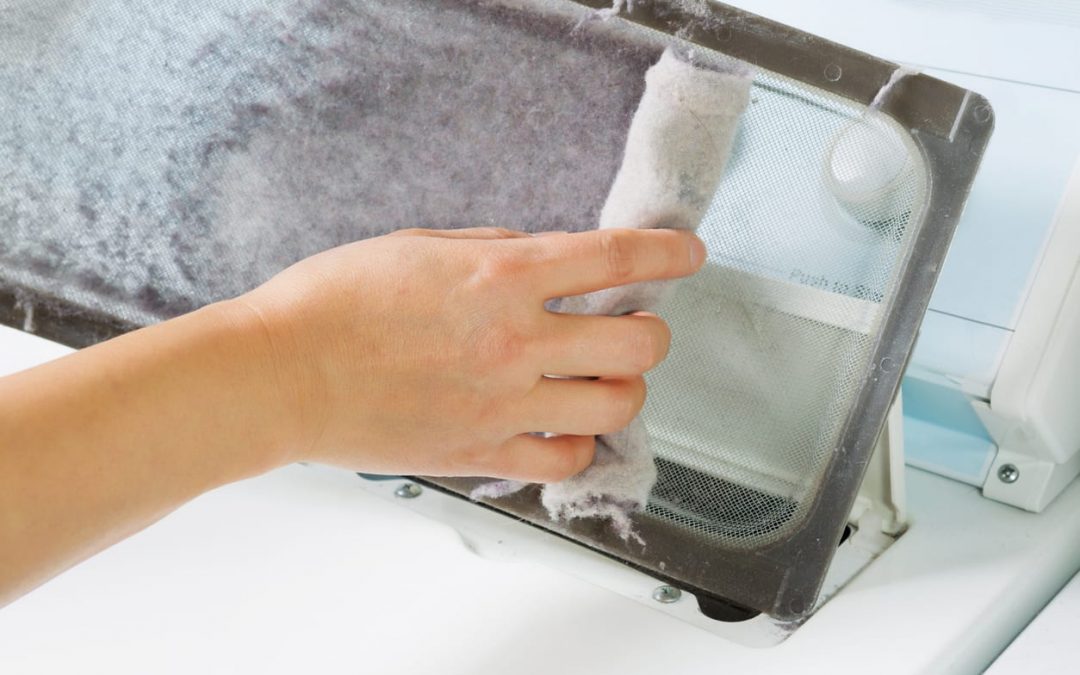
You’ve probably heard of lint — but what exactly is it, and where does it come from? Lint is simply a build-up of fibres from the clothes that you wash or dry. Cotton, linen and wool are the fabrics that leave the most lint.
Your washing machine has a lint filter to trap this fluff. If it gets clogged up, that can cause problems. You might end up with lint left on your clothes after the wash. To fix this, all you need to do is find the lint filter, usually on a front panel. Then you can clean it with a paper towel or by running under a hot tap.
Check your hoses
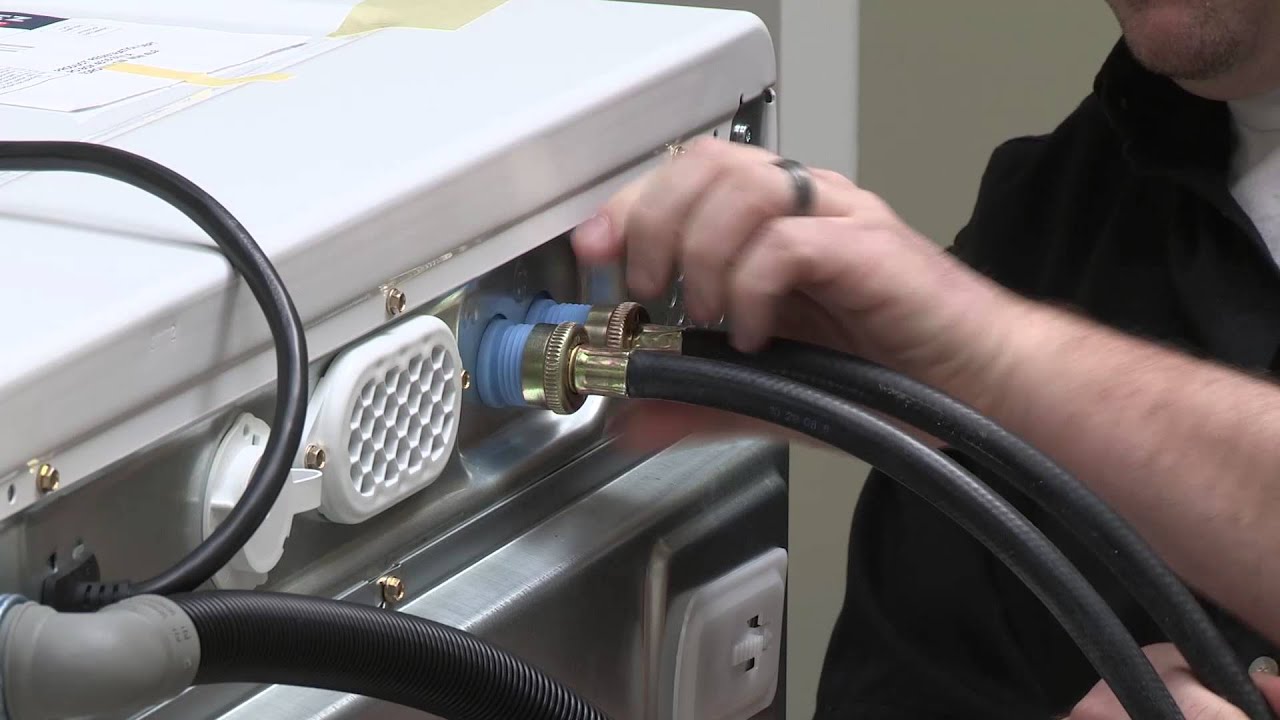
While a washing machine can last for 10 years or more, the hoses often need replacing sooner. If you check them regularly for wear and tear, you’ll avoid them failing. That could save you a lot of water on your floor.
Before checking the hoses, make sure the machine is turned off. Then turn off the water with the knobs at the back of the machine. Now you can disconnect the hoses and have a good look at them.
Run an empty hot wash
What could be nicer than giving your machine a hot bath now and again? An empty hot wash is recommended to keep the insides clean and efficient.
To do this, put on a hot cycle without any laundry. Also add a dash of white vinegar, which will help remove residue and bacteria. Make sure to clean out the detergent drawers at the same time as well.
Our blog is loaded with more related articles

Washing machine tips
How to wash your pet's bedding
Wondering how to clean your pet's bedding? Read on to find our five top tips on how to do it whilst looking after your appl...
Read more
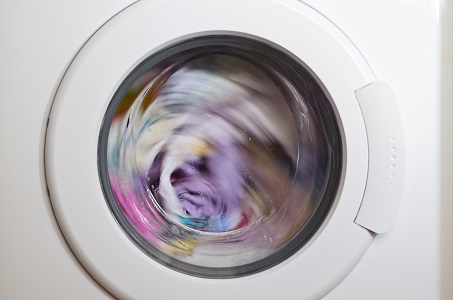
Washing machine tips
How to keep your washing machine spinning
It's important not to take your hard-working appliance for granted by making sure you give it some TLC. This can be done th...
Read more

Washing machine tips
Save energy and the planet with your laundry habits
When it comes to washing and drying our clothes, striking the right balance between cutting costs, conserving energy, and savin...
Read more
